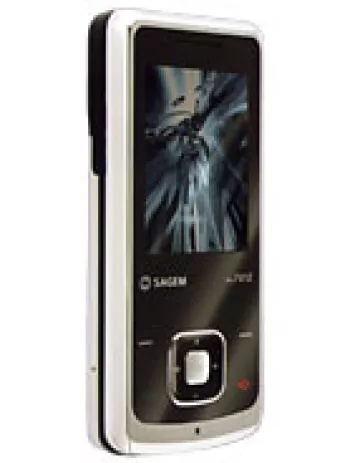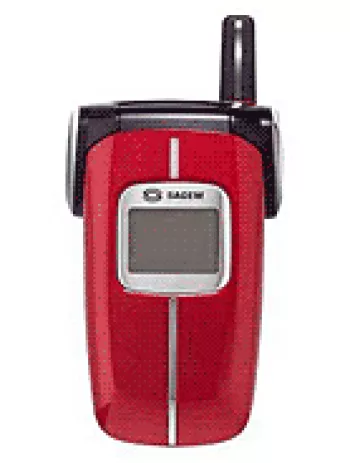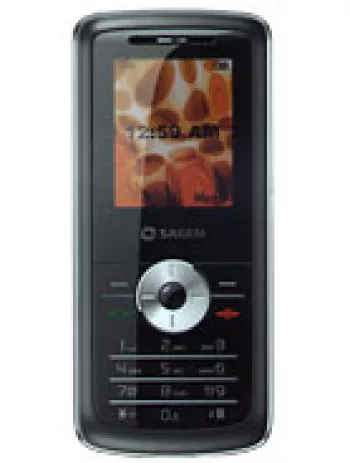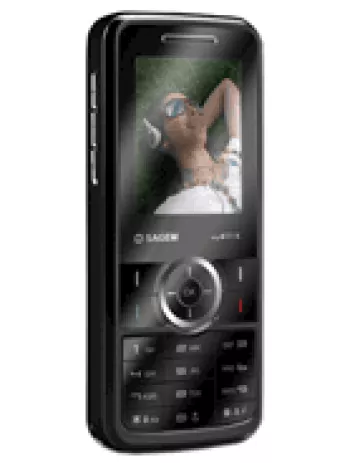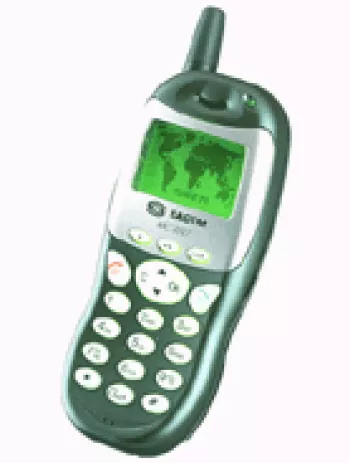
Overview of Sagem MC 950
The Sagem MC 950, a mobile phone released in 2000, embodied the technological simplicity and functionality representative of its era. With its straightforward design and basic features, it catered to the essential communication needs of users. As smartphones hadn't yet dominated the market, devices like the MC 950 offered a glimpse into the transitional phase of mobile communication technology.
Network and Connectivity
The Sagem MC 950 was equipped with GSM technology, operating on 2G networks. Specifically, it supported GSM 900/1800 bands, which were commonly used during that time. However, it lacked support for GPRS and EDGE technologies, meaning that its data connectivity was limited compared to later models. The absence of advanced connectivity options positioned it primarily as a device for voice communication and basic messaging.
Body and Design
This device featured dimensions of 116 x 45 x 18 mm and weighed approximately 95 grams. Its compact and lightweight design made it convenient for portability. The phone used a Mini-SIM, which was standard for phones of that time. Despite its simplicity, the construction of the Sagem MC 950 was robust enough to endure everyday use.
Display Features
The Sagem MC 950 sported a monochrome graphic display capable of showing up to 7 lines of text. While it did not feature a color display, which was not uncommon at the time, the monochrome screen was efficient for its intended functions—basic textual communication and simple interface navigation.
Memory and Storage
Lack of expandable storage was one of the key limitations of the Sagem MC 950. It did not include a card slot for additional memory. However, it did offer a phonebook capacity that could store up to 250 contacts, which was quite sufficient for the average user in the early 2000s. Call record capabilities were present but not extensively detailed in available specifications.
Sound Characteristics
The device offered a loudspeaker for audio output and supported vibration and downloadable monophonic ringtones for alerts. However, it did not feature a 3.5mm audio jack, which limited its capacity for personal music listening through standard headphones.
Communication and Other Features
Missing modern amenities such as WLAN, Bluetooth, GPS, and a radio, the MC 950 was not equipped for the multi-faceted communication and entertainment tasks that later phones would support. It did, however, support SMS messaging, had a clock and alarm functions, and included basic games to provide entertainment.
Battery Performance
Powering the Sagem MC 950 was a removable Li-Ion battery. The phone offered a standby time of up to 150 hours and a talk time of approximately 3 hours. These specifications reflected the phone's focus on voice communication rather than any power-intensive applications or functions.
Conclusion
In hindsight, the Sagem MC 950 serves as a nostalgic reminder of a simpler era in mobile technology, where the primary focus was on reliable voice communication rather than the multi-functionality offered by modern smartphones. Its basic features and sturdy design made it a practical choice for users at the time, and its historical significance remains noteworthy for those studying the evolution of mobile phones.
Key Features of Sagem MC 950
- Compact and lightweight design with dimensions of 116 x 45 x 18 mm and weight of 95 g.
- Supports GSM 900 / 1800 network bands.
- Monochrome graphic display capable of showing up to 7 lines.
- Phonebook capacity of 250 contacts.
- Includes a loudspeaker for enhanced audio experience.
- Vibration alert and monophonic ringtones available for notifications.
- Basic messaging capability with SMS support.
- Essential features such as clock and alarm included.
- Comes with built-in games for entertainment.
- Removable Li-Ion battery with up to 150 hours of standby time and 3 hours of talk time.
Disadvantages of Sagem MC 950
- No GPRS or EDGE support for data connectivity.
- Discontinued and outdated model from 2000.
- Monochrome graphic display with limited resolution (up to 7 lines).
- No expandable memory card slot available.
- Lacks a camera feature.
- No 3.5mm headphone jack for audio connections.
- Does not support Bluetooth or WLAN for wireless communication.
- No positioning features such as GPS available.
- No FM radio functionality included.
- Limited battery talk time of only 3 hours.
- Limited to SMS messaging only, with no internet browser support.
- Could not support Java-based applications.
View Also
More Phones
All Rights Reserved +13916 Phones © Mobilawy 2025




















